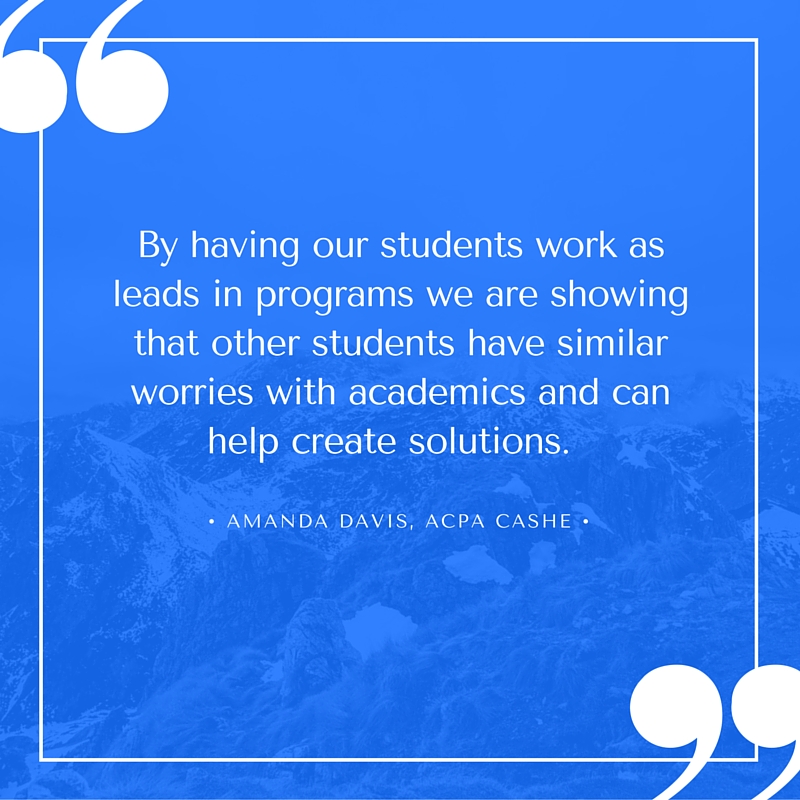Commission for Academic Support in Higher Education
Friday, 10 June 2016 - 2:33pm
Recently my supervisor and I were discussing my role as our department’s organizer for Academic Success and Support workshops and programs. He asked me what are some things I had done well this academic year and what were some things I could improve for the future. I replied that I thought I did well offering different types of workshops for our students and really meeting their academic support needs. However, I would’ve loved to have impacted a larger pool of students and really gotten academic support out to more organizations and students. I supplied ample advertisements for workshops and we offered the standard pizza and pop but I was stuck thinking “how could I truly create a lasting impression”? We talked about ways I could meet this goal and as I sat and pondered his suggestions the first thing that came to mind was how I missed using our institutions greatest resource, the students themselves.
I think that many times we, as student affairs professionals, assume we know exactly what students need, especially in regard to academic success. We are sometimes presenting materials to them in archaic forms that maybe some of our students’ cannot relate. However, I do wonder how many of us reach out to our students leaders to help design workshops and programs with our offices. This past academic year I was working with an organization about planning a workshop on approaching faculty members. I had my whole program planned and was ready to present but I thought why not ask some of the student leaders from the organization to help me in creating the program. Well, as you can imagine, they really got involved. They created activities, invited faculty members to the meeting, provided resources and were very happy to take the lead on the task I gave them. I found that all I needed to do was provided the materials and they created the rest, and what they created was amazing. It was very nice to see students create activities that got their peers involved but also helped them retain the information themselves.

I believe that students learn better when they can associate with other students. I know that at my campus, our students suffer from “Imposter Syndrome”, which is the ideology that they are alone in their academics and others are not struggling. I believe it is very beneficial for all students to see that many students struggle with academic success, especially in their first and second year of college. By having our students work as leads in programs we are showing that other students have similar worries with academics and can help create solutions. Another bonus I found was that the student leaders that I reached out to came back to me with ideas for more academic success programs for our department to host, not just for their organizations but for the campus as a whole and when I called upon their help again they were more than eager to assist.
So, in conclusion, as you are planning programs for next academic year, don’t forget to look to your best resource, your best asset…your students for help planning! Trust me you won’t regret mining for these Gems!
A little bit about Amanda (@amdavis1023): Amanda is a Baltimore, Maryland native but moved to Tampa, Florida to complete her undergraduate and graduate degrees. She received her undergraduate degree from St. Leo University and her graduate degree from University of South Florida. She worked in Residence Life for a little while but new her destiny was to see the world, so she moved to Dubai, UAE to teach and advise Emiratis, while seeing the world. However, Amanda has recently turned in her flip flops for ski boots and has moved to Denver, Colorado where she works at Colorado School of Mines a an Academic Advisor for the Center of Advising and Academic Services. She enjoys running races, traveling the world, working out at her local Crossfit Box, singing in the car, and cheering on her favorite football and baseball teams.

